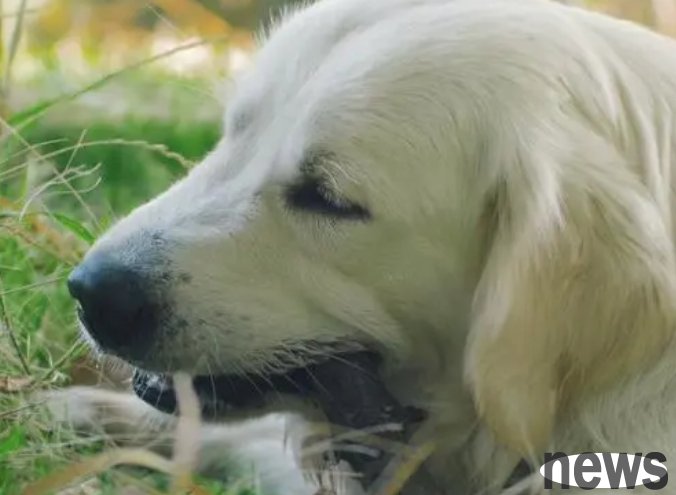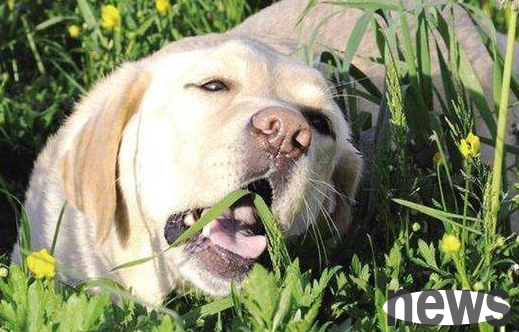The five secrets of dogs eating grass, the owner must know! Have you noticed that sometimes when you take your dog out for a walk, it will suddenly rush to the lawn on the side of the road and eat it in big mouthfuls? Are you wondering, shouldn’t do...
The five secrets of dogs eating grass, the owner must know!
Have you noticed that sometimes when you take your dog out for a walk, it will suddenly rush to the lawn on the side of the road and eat it in big mouthfuls?
Are you wondering, shouldn’t dogs love to eat meat?

Why does it eat grass like cattle and sheep? Are you worried that eating grass will cause harm to its body?
is not going to prevent it from doing this?
In fact, eating grass in dogs is a very common behavior. It may have many different reasons, and it is not necessarily abnormal or unhealthy. Today, we will uncover this mystery for you and tell you why dogs love to eat grass and how you should deal with it.
First of all, we need to understand that dogs are not pure carnivores, but omnivores.
This means that in addition to eating meat foods, they can also eat some plant foods, such as fruits, vegetables, grains, etc.
In the wild, canines will prey on other animals to obtain nutrients such as cellulose, vitamins, minerals and other nutrients in plant food.
In a home environment, we usually provide dogs with special feed or human food to meet their nutritional needs.
However, sometimes, dogs may want to eat some grass plants for some reason. Next, let’s take a look at what these possible causes are.
Dogs think grass is delicious or smelly
Some dogs may try to eat grass because of curiosity or preference. They may be attracted by the color, shape, smell or taste of the grass, and they feel that the grass is delicious or smells good.
In this case, dogs eat grass not because of physical discomfort or lack of nutrition, but only an occasional act of entertainment or exploration.
If you find that your dog occasionally eats a little grass and does not react with any discomfort, then you don’t have to worry too much. As long as you ensure that the grass has not been sprayed with any toxic chemicals, such as pesticides, pesticides, herbicides, etc., they can enjoy it freely.
Dogs lack essential nutrients
Some dogs may look for sources of supplementation due to lack of certain essential nutrients in their daily diet. For example, cellulose is a nutrient that is very important to the digestive system. It can help promote intestinal peristalsis, increase fullness, prevent constipation, etc.
Dogs have stomach discomfort
Some dogs may go to eat grass because of stomach discomfort. This is because grass’s rough fibers can stimulate their throats and stomach walls, causing reflexes of nausea and vomiting. Through vomiting, they can excrete things that are difficult to digest or harmful in the stomach, such as swallowed hair, bones, plastic, etc.
In this case, dogs eating grass is a self-treatment method, and they are trying to relieve their discomfort. If you find that your dog is suddenly eager to eat grass and vomits quickly, then you should pay attention.

Dogs are bored or stressed
Some dogs may go to eat grass because of boredom or stress. This is because eating grass can bring them some fun or comfort and make them feel better.
You can spend more time playing, walking, training, etc. with them to make them feel happy and satisfied. You can also prepare some toys and snacks for them so that they don’t feel bored when you’re not around.
Dogs have separation anxiety
The last possible reason is that dogs have separation anxiety, so they can relieve their emotions by eating grass. Separation anxiety is a common psychological problem, and when a dog is left or isolated by its owner, it feels extremely panic and uneasy.
This emotion will cause them to have some abnormal behaviors, such as shouting, biting, pulling, and urinating. Eating grass is one of them. Some dogs may eat grass to induce vomiting because they feel too anxious and stressed, so they will release their emotions.
In this case, you need to pay more attention to whether your dog has other symptoms of separation anxiety. If so, take timely measures to improve their psychological state.
Of course, the most important thing is to take them regularly for physical examinations to check whether they have any potential health problems, and detect and treat them in a timely manner. Only in this way can you ensure that your dog lives a healthy and happy life.